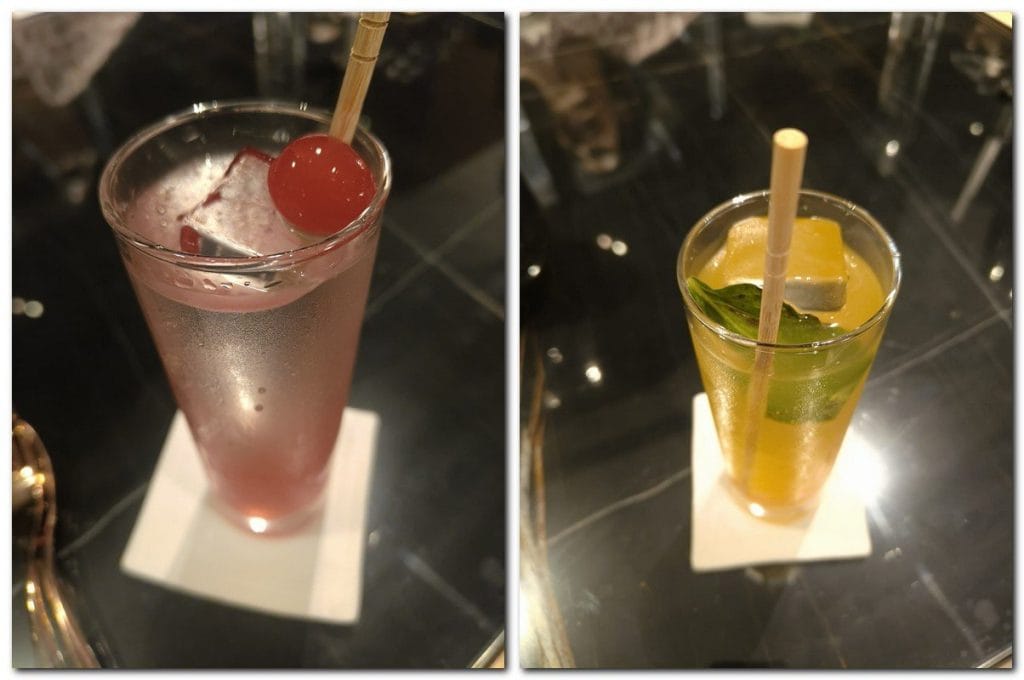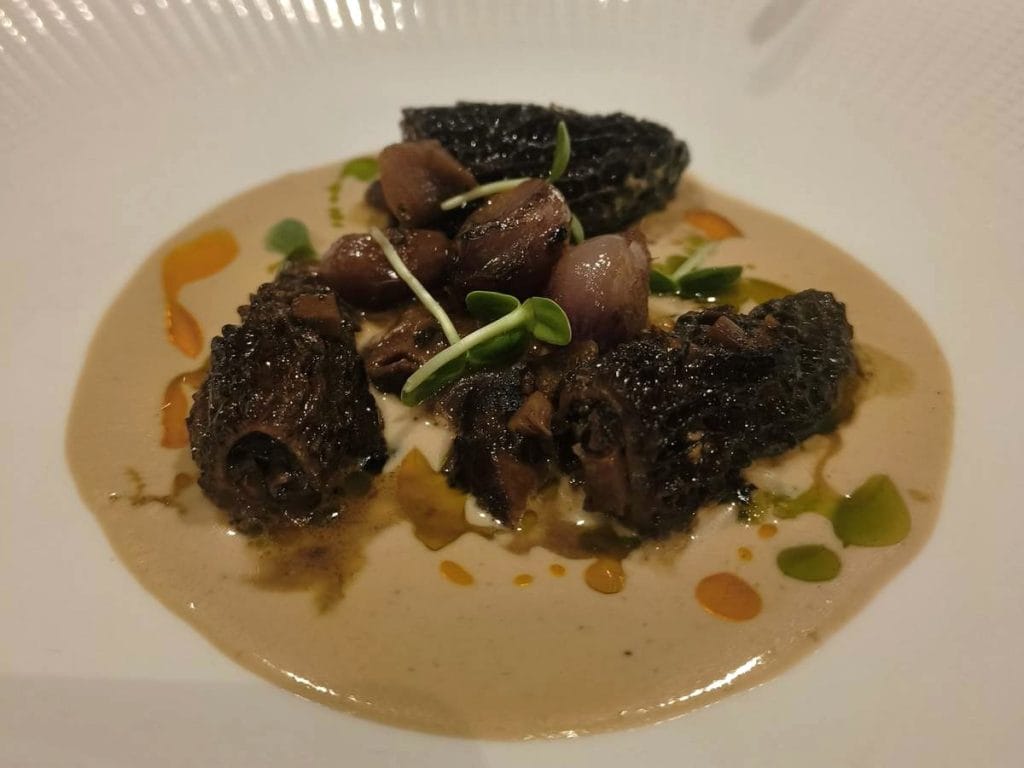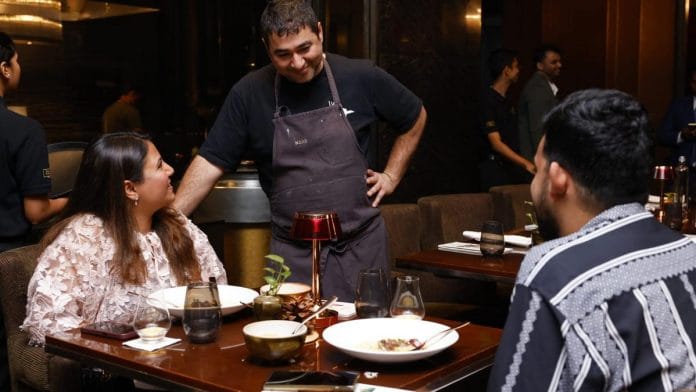Pune: Dressed in his signature black tee and tracks, chef Prateek Sadhu placed a plump askalu, often called Himachal’s idli, on a wooden tray. His Pahadi pop-up had landed in Pune—the final stop on a seven-city tour serving inventive dishes from Naar, his destination restaurant in Kasauli, Himachal Pradesh.
The askalu was no ordinary rice flour roundel. It was made with tapioca starch and stuffed with yak cheese, topped with orange marmalade and seasoned with a nutty sesame lun, a local salt. It’s one example of how Sadhu starts with traditional ingredients and techniques, then refines them into something unexpected.
The two-day pop-up at the 5-star Conrad Pune was part of a collaboration with Bengaluru-based Conosh, a platform curating dining experiences across India. It brought a taste of Naar—Sadhu’s acclaimed 16-seater restaurant—to diners who might never make the trip to Kasauli.
The Pune leg, following stops in Jaipur, Delhi, Bengaluru, Chennai, Hyderabad, and Kolkata, was held at Zeera, Conrad Pune’s Indian restaurant earlier this month. The six-course meal, priced at Rs 12,000 per person, showcased Naar’s hyperlocal farm-to-plate experience.

“You’re not looking at mountains, you’re not looking at the landscape—the pop-up is just a tease to give you a sense of what we’re trying to do,” said Sadhu, who helmed Masque, a fine-dining restaurant in Mumbai until 2022 before launching Naar. “Every dish has a meaningful story—the hand-pulled noodles in Sundarkala are intrinsic to Uttarakhand, just like eating dal. Naar is the first-of-its-kind restaurant up in the mountains.”
The menu gave equal attention to drinks. Each course was paired with Indri single malt whisky cocktails and mocktails. The meal began with an Old Fashioned made with in-house vermouth and a lacto-fermented aam-flavoured sparkling drink.

Heightening the experience were evocative aromas straight from the hills, like makki tujj, a grilled chicken liver and heart dish served on skewers made of pine twigs, infusing the meat with woodsy smokiness.
Over the course of a Friday and Saturday, 95 diners tucked into the feast.
“The flavour of the mountains came to the city. Every detail had so much thought behind it, and we left in a perfect food coma,” said Vijeta Singh, founder of Cobbler and Crew cocktail bar, who had signed up for the meal. “We need more experiences like this in Pune, it was a packed house. Can’t wait to visit Naar and experience the full theatre of it all.”
Also Read: Indian chefs are inviting you home for food & stories. Pop ups are the newest dining trend
Haute Himalayan cuisine
Sadhu takes local flavours and flips them with a global touch. That’s what made Conosh bring his food on a seven-city tour.
“Chef Prateek Sadhu’s approach is rooted in his deep understanding of regional produce and the culinary traditions of India, while presenting them with an international perspective,” said Conosh co-founder Vaibhav Behl. “We believe in making gastronomy more accessible to people.”
Each course played with contrasts—like khambir toast, Ladakh’s dense, astringent sourdough, topped with delicate trout.

“We serve this with barely cooked trout, to ensure we retain the sweetness of the fish on a bed of red chilli chutney and mustard,” said Sadhu.
The Sundarkala hand-pulled noodles from Uttarakhand were served with lamb sausage, a Sichuan-like Himachali pepper called timru, and green butter sauce, topped with a dried vegetable reduction and chilli oil. A lacto-fermented cherry fizz balanced out the richness.
For some diners, the experience was revelatory.
“I had an absolutely wonderful experience trying chef Prateek Sadhu’s specialties. Everything was so flavourful and loved how he mixed the Himalayan flavours with subtle citrus tastes,” said actor Swati Vatssa.

The pop-up paid homage to nostalgic home-style preparations, but always with a twist.
The Neembu Salad, inspired by a community dish from Uttarakhand, arrived in a scooped-out lemon shell. Inside, the shredded peels were mixed with hemp, jaggery, mustard, and garlic. A yogurt topping, seasoned with coriander oil and red chilli powder, gave it the texture of a dahi chaat.
For the main course, gucchi (Kashmiri morels) swam in Himalayan cha, a yogurt-based sauce, served with Mushk Budij rice and tomato chutney.

Dessert turned a humble pairing—ragi roti and white butter—into inspiration for a lucious ragi-pineapple cake with smoked brown butter ice cream. A lacto-fermented banana sparkling water with a hint of vinegar wrapped up the meal.
Also Read: These chefs are done taking orders. They’re turning entrepreneurs
Pop-ups on 5-star menus
Pop-up restaurants seem to be everywhere, from malls to homes. For luxury hotels like the Conrad, they’re a way to stay ahead of culinary trends and offer diners something fresh.
“These partnerships introduce our guests to new flavours, techniques, and dining experiences in the comfort of their locality, elevating their overall experience,” said Abhishek Sahai, general manager, Conrad Pune.
It’s part of a broader strategy to bring in independent chefs and niche culinary concepts.
“Chef Prateek gives a dynamic exchange of ideas and new flavours, ensuring that our F&B offerings remain innovative,” Sahai added.
It’s not the first-popup at the hotel. They recently hosted a takeover by Bangkok’s Rabbit Hole, one of Asia’s 50 Best Bars since 2018. It also had an outing by Kuala Lumpur’s Nadodi, a restaurant that has twice featured in the Asia’s 50 Best list. The common focus, Sahai says, is on storytelling, ambiance, and personalised service.
The seven-city tour with Naar kicked off in September 2024, with stops at top luxury hotels. The Leela hosted the first four—Jaipur, Delhi, Bengaluru, and Chennai—followed by Park Hyatt in Hyderabad and JW Marriott in Kolkata.
But having brought his Pahadi pop-up to the city, Sadhu was ready to return to his down-to-earth restaurant the next day.
“Running a restaurant in the hills is a different ball game compared to the city. I closely work with farmers and understand the terroir that influences the produce. It is a chef’s dream come true,” he said.
(Edited by Asavari Singh)






